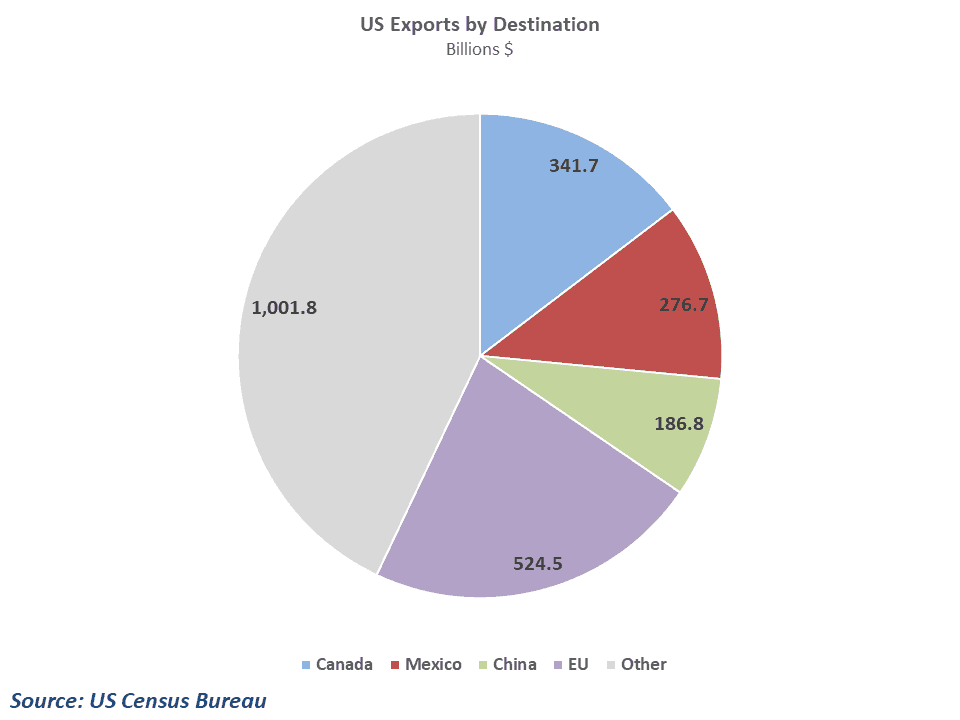Concerns over a global trade war have eased this morning, as Canada agreed late Sunday to join a trade deal between the US and Mexico. The deal makes modest revisions to the previous North American Free Trade Agreement (NAFTA), and clears up some of the uncertainty surrounding the trade environment.
The trade deal caps over a year of negotiations between the US and its neighboring economies. The US and Mexico agreed in late-August to a preliminary trade agreement, but talks with Canada had been held up by disputes over US access to the Canadian dairy market and Canada’s desire to preserve a trade dispute mechanism in NAFTA.
The Trump administration wanted to get a NAFTA replacement deal done before Mexico’s President Enrique Peña Nieto leaves office on December 1st, and set a September 30th deadline to finish negotiations to get a new deal passed. Concerns were rising that a new deal with Canada would not be in pace before the deadline, and several lawmakers indicated that they would not support any deal that was put forth without Canada’s involvement. This raised uncertainty in markets, as businesses on all sides were unsure of the terms of trade going forward without a new deal in place.

This is no small matter, as Canada and Mexico represent the two largest individual export markets for the US. Combined, the amount of goods exported to these two economies exceeds to amount sent to the entire European Union. Likewise, the US represents the primary export market for both Canada and Mexico. Trade between these economies has enjoyed minimal barriers since 1994 when NAFTA was first enacted, and the prospect of higher tariffs and other trade barriers would be a significant blow to trade performance.
This new deal, called the United States-Mexico-Canada Agreement (USMCA) will replace the previous NAFTA arrangement, keeping much of the existing structure in place. US dairy farms gained additional access to Canadian markets, and the dispute resolution mechanism contained in Chapter 19 in the NAFTA agreement was preserved. Notably, the steel and aluminum tariffs implement earlier this year were not rescinded in the USMCA. Administration official said that this issue would be dealt with separately.
President Trump took to Twitter early this morning to praise the new deal, tweeting: “It is a great deal for all three countries, solves the many deficiencies and mistakes in NAFTA, greatly opens markets to our Farmers and Manufacturers, reduce Trade Barriers to the U.S. and will bring all three Great Nations closer together in competition with the rest of the world.” Canadian Prime Minister Justin Trudeau agreed, calling it a “good day for Canada & our closest trading partners.” Jesus Seade, the NAFTA negotiator for Mexican President-elect Andres Manuel López Obrador, said “NAFTA 2 will give certainty and stability to trade.”
Markets also responded favorably in the wake of the announcement, as US equity futures rose before Monday’s open. The US Dollar, Canadian Dollar, and Mexican Peso all gained value following the deal, representing some of the relief felt by resolving some of this trade uncertainty.











